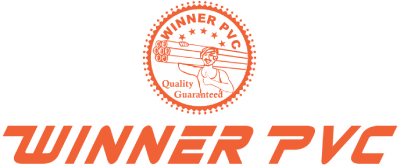
PVC PIPES:
PVC pipe full form is Polyvinyl Chloride. It is a man-made plastic where stabilizers and other additives prevent degradation and gives the polymer the desired physical properties. PVC pipes were initially used in the sewage, and drainage applications since the 1950s. However, in the present, there are around two million miles and much more of PVC pipes in service.
PVC pipes are designed to resist oxidation and degradation. They are resistant to corrosion, scaling and microbial attack. The durability is relatively high in PVC pipe, meaning the lifespan of PVC pipes can be 50 years and longer if installed properly. Improper installation that includes poorly solvent joints or tree roots burrowing their way into the pipe connection can damage the PVC pipes and may cause failure.
How PVC Pipes are Made?
The PVC Pipes are made by extrusion of raw material. The below are common steps follow to manufacture PVC pipes.
- First, the raw material pellets or powder feed into PVC twin screw extruder.
- The raw material is melted and heated in multiple extruder zones
- Now it is extruded via a die to make in the shape
- After that, it is cooled
- In the end, the PVC pipes are cut at the required length.
For almost every type of PVC pipes has a similar manufacturing process. The PVC pipes have intrinsic characteristics which add challenges to pipe manufacturer in production and sell it on the market.
What are the raw materials used in manufacturing PVC pipes?
All PVC products used in today’s industrial equipment, including pipes, fittings, sheet metal, and ducting, began as two separate materials: chlorine and ethyleneChlorine is one of the by-products of chloralkali salt processing.
Vinyl Chloride Monomer (VCM):
The fundamental building block for PVC, VCM is produced through the chlorination of ethylene. It is a key monomer in the polymerization process to form polyvinyl chloride (PVC).
PVC Resin:
The result of polymerizing vinyl chloride monomers, PVC resin forms the basis of the PVC material used in pipe manufacturing. It determines the physical and chemical properties of the final product.
Additives:
- Plasticizers: These are added to increase the flexibility and workability of the PVC material. Common plasticizers include phthalates and adipates.
- Stabilizers: To prevent degradation of PVC during processing and use, stabilizers like lead-based compounds, calcium-based compounds, or tin stabilizers are incorporated.
- Lubricants: Additives such as waxes and metallic soaps are used to reduce friction during processing.
- Pigments: For coloring PVC pipes, pigments are added to the formulation.
PIPE EQUIPMENT:




